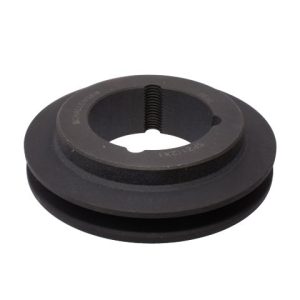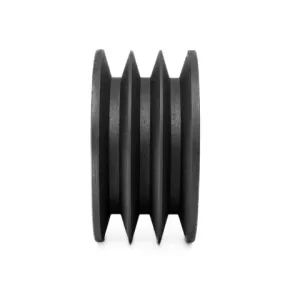

Call Us
+91 90031 17307Send Us Mail
[email protected]
A Taper Lock Pulley is a type of mechanical component used to transfer power between axles and belts in various machinery. Its unique design features a tapered bushing that fits snugly into a corresponding tapered bore, allowing for easy installation and removal while ensuring a secure and precise fit.
Taper Lock Pulleys play a crucial role in mechanical systems by facilitating efficient power transmission. They are widely used in various industries, including manufacturing, automotive, and agriculture, due to their reliability, durability, and ease of maintenance.
This article aims to provide an in-depth understanding of Taper Lock Pulleys, covering their historical development, technical specifications, types, applications, benefits, challenges, installation process, maintenance tips, and future prospects. By the end of this comprehensive guide, readers will have a thorough knowledge of Taper Lock Pulleys and their significance in modern mechanical systems.
Taper Lock Pulleys are typically made from high-quality materials such as cast iron, steel, and aluminium. These materials are chosen for their strength, durability, and resistance to wear and corrosion. The selection of material depends on the specific application and the required load capacity.
Taper Lock Pulleys come in various sizes and dimensions to accommodate different shaft diameters and belt types. Standardized sizing ensures compatibility and interchangeability, making it easier for engineers and technicians to select the appropriate pulley for their needs.
Taper Lock Pulleys are designed for long-term use, with durability being a key consideration in their construction. Proper maintenance and regular inspection can significantly extend the lifespan of these pulleys, ensuring reliable performance over many years.
The load capacity of a Taper Lock Pulley is determined by its material composition, design, and size. High-strength materials and precision manufacturing processes enable these pulleys to handle significant loads, making them suitable for heavy-duty applications.
Disc couplings are often employed in power transmission applications, especially where motors exceed 200 HP and the use of journal bearings is common.

Single groove pulleys are the simplest type of Taper Lock Pulleys, featuring a single groove for the belt. They are commonly used in applications where a single belt is sufficient for power transmission.

Multiple groove pulleys have two or more grooves, allowing for the use of multiple belts. This design increases the power transmission capacity and provides redundancy in case of belt failure.
Custom Taper Lock Pulleys are manufactured to meet specific requirements and specifications. These pulleys can be designed with unique dimensions, materials, and features to suit specialized applications.
Taper Lock Pulleys are widely used in industrial machinery, Agricultural Equipment, HVAC systems, food processing equipment, and packaging machinery. Their versatility and reliability make them a preferred choice in various sectors.
One of the main advantages of Taper Lock Pulleys is their ease of installation and removal. The tapered bushing design allows for quick and secure attachment to the shaft, reducing downtime and maintenance efforts.
Taper Lock Pulleys are designed to handle high loads, making them suitable for demanding applications. Their robust construction ensures reliable performance even under heavy stress.
Taper Lock Pulleys offer improved efficiency in power transmission, resulting in better performance and energy savings. Their precise fit and alignment contribute to smoother operation and reduced energy loss.
The precision fit of Taper Lock Pulleys minimizes wear and tear, reducing the need for frequent maintenance. This translates to lower operational costs and improved machinery uptime.
Despite their durability, Taper Lock Pulleys can experience wear and tear over time. Regular maintenance and timely replacement of worn components are essential to maintain optimal performance.
One of the challenges associated with Taper Lock Pulleys is the potential for misalignment. Proper installation and regular inspection are crucial to ensure alignment and prevent premature wear.
Ensuring compatibility with other components can be a limitation, especially in custom applications. Careful selection and specification are necessary to avoid compatibility issues.
While Taper Lock Pulleys offer numerous benefits, they can be more expensive than traditional pulleys. However, their long-term advantages often outweigh the initial cost.
To install a Taper Lock Pulley, you will need tools such as a torque wrench, Allen keys, and a mallet. Proper safety equipment, including gloves and safety glasses, is also recommended.


